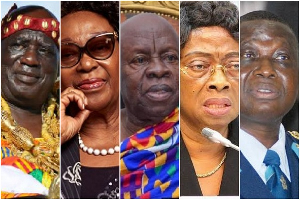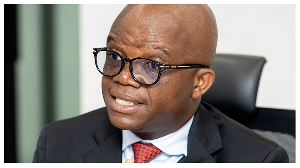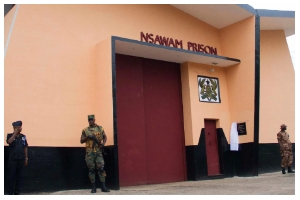Part 1
“Oil is the devil’s excrement”. Those are not my words. They were said by Juan Pablo Perez
Alfonso, a founder of OPEC but, they could have been mine too. It is well known that, oil
wealth creates major opportunities but, if mismanaged, it leads to many problems. Resource
curse is the term used to describe the failure of resource-rich countries to benefit from their
natural wealth. Countries with large endowments of natural resources, such as oil and gas,
often perform worse in terms of economic development and good governance than do
countries with fewer resources. Paradoxically, despite the prospects of wealth and
opportunity that accompany the discovery and extraction of oil and other natural resources,
such endowments all too often impede rather than further balanced and sustainable
development. Perversely, many countries rich in natural resources are poorer and more
miserable than countries that are less endowed. This is clearly visible in Sub-Saharan Africa.
Countries in Sub-Saharan Africa such as Angola, Nigeria, Sao Tome and the Principe, Chad,
Mauritania, Equatorial Guinea, Gabon and Cameroon have all failed in utilising their
respective oil revenues to foster economic development thereby creating wealth for their
people.
For example, 70 percent out of the 140 million people of Nigeria lives on less than $1 a day
and yet, Nigeria produces an estimated 2 million barrels of oil per day which equates to 2
billion cubic feet of gas per day. Currently, a barrel of oil hovers around $130 and the
international market price for a cubic feet of gas is $0.14. Upon all this wealth, abject
poverty is the order of the day in Nigeria. Without mincing words, Nigeria suffers from
endemic corruption because, according to the Economic and Financial Crimes Commission of
Nigeria, the leadership elite were able to steal about $400 billion between 1960 and 1995.
According to the International Monetary Fund, of the $5bn Angola earns from oil revenue,
$1bn disappears into the private bank accounts of the elite, and does not pass through the
Central Bank. How and why I ask? On the other hand, the lack of natural resources has not
proven to be a fatal barrier to economic success. The star performers of the developing
world- the Asian Tigers (Hong Kong, South Korea, Singapore and Taiwan) all achieved
booming export industries based on manufactured goods and rapid economic growth without
large natural resource reserves.
This generally bleak picture among resource rich countries nonetheless masks a great degree
of variation. Some natural resource rich countries have performed far better than others in
resource wealth management and long-term economic development. For example, some
thirty years ago, Indonesia and Nigeria had comparable per capita incomes and heavy
dependencies on oil sales. Yet today, Indonesia’s per capita income is four times that of
Nigeria. For instance, in comparing diamond rich countries of Sierra Leone and Botswana,
one sees that, Botswana’s economy grew at an average rate of 7 percent over the past 20
years while Sierra Leone plunged into civil strife, its gross domestic product (GDP) per capita
dropping by 37 percent between 1971 and 1989. The question is, can Ghana succeed in
managing its oil wealth efficiently and effectively as compared to most Sub-Saharan African
countries who have failed in this quest? As a nation, have we been able to use the wealth of
our natural resources such as gold, diamonds and timber to foster economic development?
Have we been able to develop linkages between the mining sector and the economy? Are
the sprawling poverty at mining towns such as Obuasi, Tarkwa, Akwatia, and Prestea
testament of our failure? Mining extraction started in Obuasi and Johannesburg just over 100
years ago but, whilst the South Africans have been able to use the proceeds of gold thereof
to transform Johannesburg into a world class city, Obuasi on the other hand is a town deeply
steeped in poverty and deprivation. What went wrong? Against this backdrop, where lies the
confidence and hope that, as a nation, we will succeed in developing our oil find effectively
and efficiently? We can only succeed when we learn lessons and learn from our mistakes
but, as Ghanaians, do we ever learn lessons from our mistakes?
Some years back, a ship load of oil vanished from Ghanaian territorial waters without being
spotted and was later recovered in Nigeria. An investigation was conducted and
recommendations made. Just this year, a ship load of oil which was destined for Tema from
Saltpong mysteriously vanished again from Ghanaian territorial waters only to be found yet
again in Nigeria. Did we learn any lessons from the first incident? Obviously not, otherwise,
there would not have been a repetition. How can the gift of natural resources, including oil
and gas, be turned around to be a blessing to the Ghanaian people rather than the curse
many say it can be? These are the questions to explore in this and subsequent articles in
reviewing the best way forward as some Ghanaians worry that, the great prospects of oil
and gas may prolong Ghana’s nightmare rather than help the people down the path of
sustainable prosperity.
Ghana’s oil find belong to Ghanaians. The people of Ghana through their elected government
and representatives have the enormous responsibility for developing these resources for
their benefit and the benefit of future generations. It is crucial that ordinary Ghanaians feel
confident that they own these resources and that they have a voice in how they are
exploited and in how the revenues these natural resources generate will be disbursed. As a
nation, we must engage in a public debate about how the country will develop Ghana’s oil
and gas wealth for our long term good. On this score, the government has started off well
by holding an international conference as to the best way forward but, starting off well does
not necessarily mean that, it will end well. What goes into the planning will prevent poor
performance. Any public debate must define the institutions that will manage the oil wealth,
the role of international oil companies and other outside actors, and the system for
collecting, investing, and disbursing revenues from the oil industry. The people of Ghana
must develop their own oil policy and their planning but, we must learn from countries
such as Malaysia, Botswana, and Norway, and the goal of such policy and planning should be
to ensure optimal benefits to Ghana and not to enrich a few at the expense of the many. Oil
extraction does not inevitably result in poor development. If revenues are managed
transparently, accountably and fairly, then oil will become a blessing in Ghana.
In order to develop a sense that, the country’s oil wealth belongs to the people of Ghana
and they have a voice in its management, the Ghanaian people must have reliable
information. This requires adopting a practice relatively new to Ghanaian culture:
TRANSPARENCY, the obligation of all actors in the oil and gas sectors to operate in a
manner that allows for public scrutiny. Transparency is a tool that strengthens institution
building. In societies such as Ghana’s, where institutions like parliament and the press are
still weak but growing, transparency can allow for concerned citizens and non-governmental
organizations to shed light on unsound decision-making, disclose fraud, waste, and
substandard practices and press government officials to account for their actions.
Transparency also allows investors to gather information which will enhance the investment
climate, improve the quality of investment decision making and increase trust. We should not
only preach about transparency but, we should practice transparency in all its format.
Transparency is not a stand-alone tool, and it is only a start but, if it seen as a prerequisite
to other types of state and market reforms, it promises real payoffs for managing
expectations, reducing social tensions, and providing more stability. In this respect, it has
the potential to provide real governance dividends in the energy sector in Ghana. Greater
access to information sets the framework for producing better monitoring, and both
information and monitoring create incentives for the involvement of those who currently
are (but need not be) adversely affected by petroleum exploitation. The interactive efforts of
information, monitoring, and participation can create the necessary conditions for making
many of the current government proposals for overcoming the resource curse to work. This
is because overcoming information, monitoring, and participation deficits can help to create
a new consciousness among leaders and citizens that dependence on petrodollars alone is
not a sustainable basis for development. Declaring what is being paid to government,
revealing the needs of the country, and showing that plentiful petrodollars are really not so
abundant after all, will give arise to debate over how more revenues can be raised. We must
institutionalize efficient management, transparency and good governance of oil and gas
resources, otherwise there are serious risks of economic failure and environmental
catastrophe leading to political and social unrest.
Transparent and accountable management of revenues from oil and gas will ensure that,
the accrued wealth thereof, will translate into sustainable development. Corruption and
mismanagement breed in opacity, and the resulting instability is bad for business, it
damages the reputation of companies, and results in lower investor returns. Transparency
can help change the resource curse into a blessing in Ghana by facilitating and improving
the accountability of companies and government to their investors and citizens respectively.
Ensuring access to information about how much money government is receiving or has
received from oil thus far, empowers citizens to hold our government accountable, monitor
how the money is spent and lobby for responsible public spending. Greater accountability
should limit bad practices and the mismanagement of oil revenues which all too often fuel
corrupt elites and create social conflicts. If managed properly, oil revenue will provide the
basis for poverty reduction, economic growth and sustainable development.
Even though it may offend some who think Botswana is a small country, I say again that,
we can profit by learning from Botswana. It is better to get wise late than never. If we do
learn from them, just as we can from South Korea, Malaysia and Singapore, poverty may
God forbid, apply for a resident permit in Ghana. We must learn lessons from our past
mistakes and use our oil find to create wealth and sustainable prosperity for the citizens of
Ghana.
Part 2 of my article will attempt to offer solutions, and the best way forward.
Nana Yaw Ossei
London.
nyossei@yahoo.com
Opinions of Wednesday, 30 July 2008
Columnist: Ossei, Nana Yaw


















